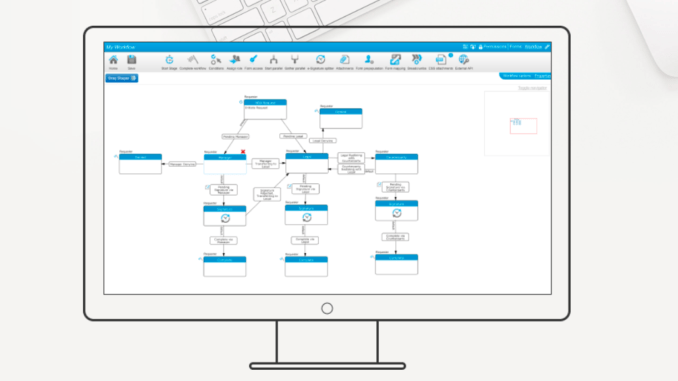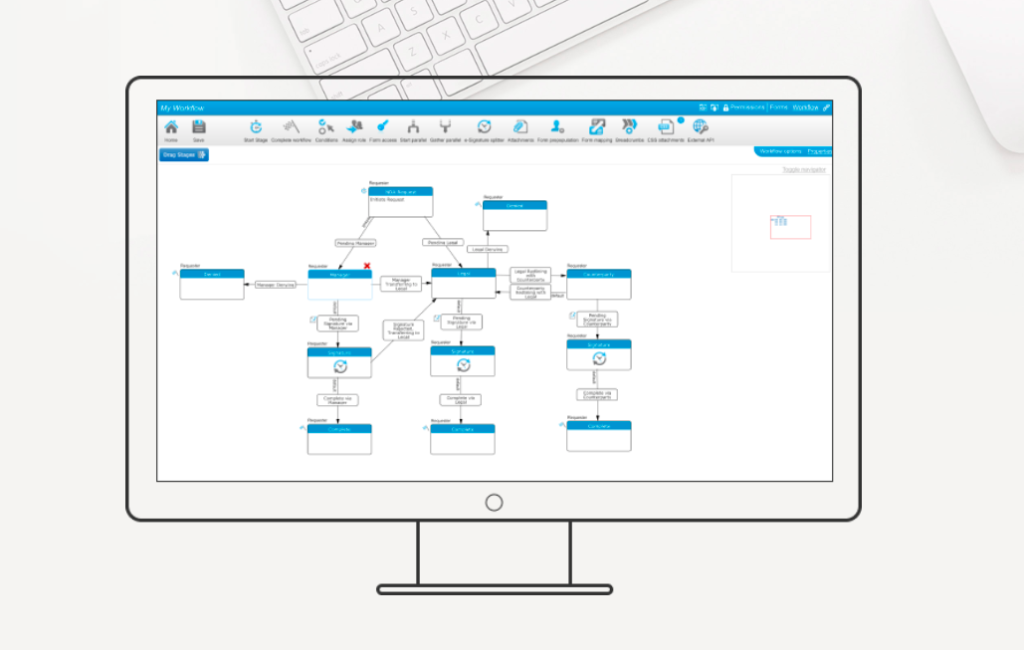
Legal tech operations conglomerate, Mitratech, has acquired DIY process automation startup, ThinkSmart, in a move that indicates a growing demand to increase efficiency in the legal production process among corporates.
While Mitratech has been around since the late 1980s, offering services such as e-billing and matter management tech to inhouse lawyers, ThinkSmart is probably less well known to General Counsel (GC), but has been involved in some interesting projects with corporate legal teams already.
One example was helping Yahoo’s legal team with how it dealt with NDAs, spending authorisations and trademarking by leveraging its ‘no code’ / ‘drag and drop’ process automation system which can be leveraged without coding or computer skills.
Another example is NetApp’s legal team, the home of Connie Brenton, CEO of CLOC. NetApp identified many potential use cases for workflow automation, and began to train internal experts. Workflow automation has since been applied to more than 40 use cases there, the company said.

By chance Artificial Lawyer spoke to ThinkSmart’s CEO, Paul Hirner, some time ago, before the merger, and he explained a bit about the company and its technology. (He also mentioned that he used to work as a dentist in Swiss Cottage in London, but, that’s another story…)
Hirner said that his company, pre-merger, was the result of a spin-off from a database marketing company four years ago. The aim has been to develop well-designed workflows and ‘remove mundane work’. They have also worked with plenty of non-legal sector clients in the past, such as healthcare and insurance.
‘Our goal is standardisation, compliance and centralisation,’ he said, and noted that the company tries to focus on high volume matters that a legal or compliance team faces, such as helping them to create a self-service NDA system.
For example, they did this for EA, the games company, allowing the company to use questions in a workflow system to pick the right NDA and get it populated with the right language.
The company has also looked at document automation more broadly, with an aim to allow ‘self service contracts on request’ where you fill in boxes and this populates the clauses in the document.
E-signatures can then be added and the documents can be quickly emailed on to the relevant people. In short: taking the friction out of lower level matters.
Hirner told Artificial Lawyer that the system is not complex to use. ‘It’s easy to design a form [that will help make a document]. It is a drag and drop system, you assign boxes for clauses, and then you can organise the approval flow,’ he said.
‘We also do training and we certify legal ops people. After about 10 hours of training they are quite sophisticated in how they can use it,’ he added when Artificial Lawyer interviewed Hirner at the time.
Commenting on the merger, Mitratech said in a statement that the combination of ThinkSmart will allow the company to offer ‘an increase in organisational efficiency, visibility and collaboration while decreasing cost, time and overall risk impact’ to inhouse legal clients.
Mitratech CEO Jason Parkman, added: ‘Individually, each company has been a factor of change in the industry. Combined, we’re positioned to open up the ‘next frontier’ for legal operations.’
‘Legal and compliance teams will be able to extend processes and best practices throughout the enterprise to proactively manage risk…[and] the legal department [then] becomes a trusted advisor and the centre of innovation for the business,’ he concluded.